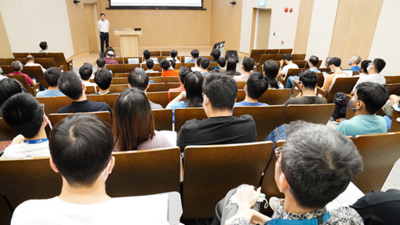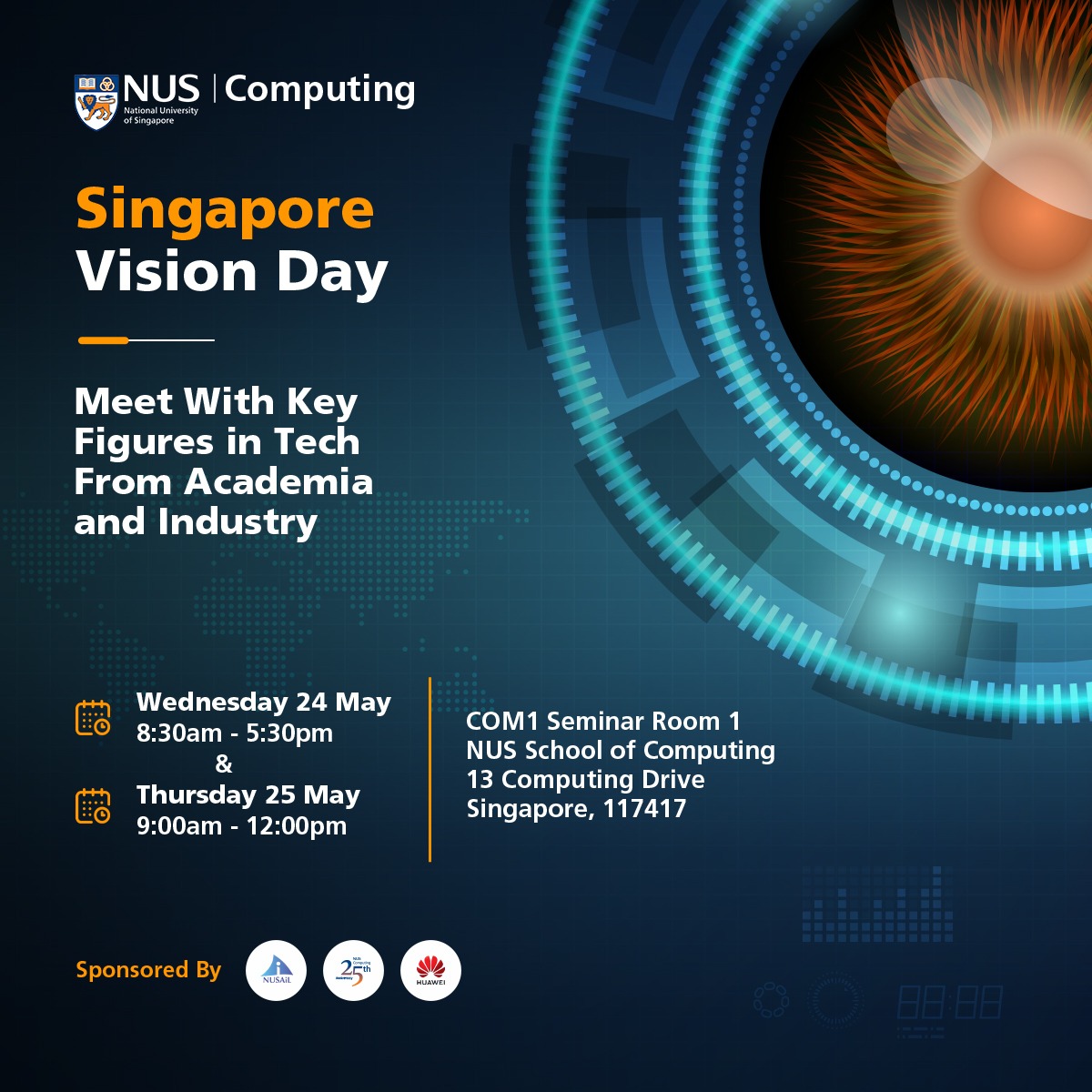Distinguished Lecture Series
NUS Computing: Future of Artificial Intelligence Symposium
NUS Computing COM1 #02-06 Seminar Room 1 (SR 1) COM1 13 Computing Drive Singapore 117417, SingaporeVisual intelligence is a cornerstone of intelligence, for both humans and machines. In this talk, I go over a number of research work by our group on the topics of visual perception and robotic learning. The guiding principle of our work is inspired by the Gibsonian belief that perceptual and robotic learning should be based on an ecology approach, solving tasks and problems approximating the real-world setting and scale.
From Seeing to Doing: Understanding and Interacting With the Real World
NUS Computing COM1 #02-06 Seminar Room 1 (SR 1) COM1 13 Computing Drive Singapore 117417, SingaporeVisual intelligence is a cornerstone of intelligence, for both humans and machines. In this talk, I go over a number of research work by our group on the topics of visual perception and robotic learning. The guiding principle of our work is inspired by the Gibsonian belief that perceptual and robotic learning should be based on an ecology approach, solving tasks and problems approximating the real-world setting and scale.
Machine Learning at All Levels – a pathway to “Autonomous” AI
Innovation 4.0, I4-01-03 - SEMINAR ROOM, 3 Research Link, Singapore 117602 COM1 13 Computing Drive Singapore 117417, SingaporeVisual intelligence is a cornerstone of intelligence, for both humans and machines. In this talk, I go over a number of research work by our group on the topics of visual perception and robotic learning. The guiding principle of our work is inspired by the Gibsonian belief that perceptual and robotic learning should be based on an ecology approach, solving tasks and problems approximating the real-world setting and scale.
Towards the Industrial Metaverse
Innovation 3 Auditorium 21 Heng Mui Keng Terrace, Icube Building, Singapore 119613, SingaporeWhile true AR/MR consumers devices are probably still years away, devices like HoloLens2 already have compelling applications in industry today. In this talk we will review what devices can do today and then present ongoing research expanding those capabilities. We will discuss how egocentric activity recognition can be used to enable devices to better assist users in learning and performing tasks.
Building Connections: From Human-Human to Human-AI Collaboration symposium
Singapore EXPO , SingaporeProgram Schedule (As of July 11) AAAI 2023 Summer Symposium Series Building Connections: From Human-Human to Human-AI Collaboration Venue: Garnet 213, Level 2 Singapore EXPO Note: Full papers (17 mins…
NUSAiL Distinguished AI Lecture Series – Prof Marta Kwiatkowska
NUS Computing COM1 #02-06 Seminar Room 1 (SR 1) COM1 13 Computing Drive Singapore 117417, SingaporeComputing systems are becoming ever more complex, with automated decisions increasingly often based on deep learning components. A wide variety of applications are being developed, many of them safety-critical, such as self-driving cars and medical diagnosis. Since deep learning is unstable with respect to adversarial perturbations, there is a need for rigorous software development methodologies that encompass machine learning components. This lecture will describe progress with developing automated certification techniques for learnt software components to ensure safety and adversarial robustness of their decisions, including the role of causality, uncertainty and neuro-symbolic approaches.



